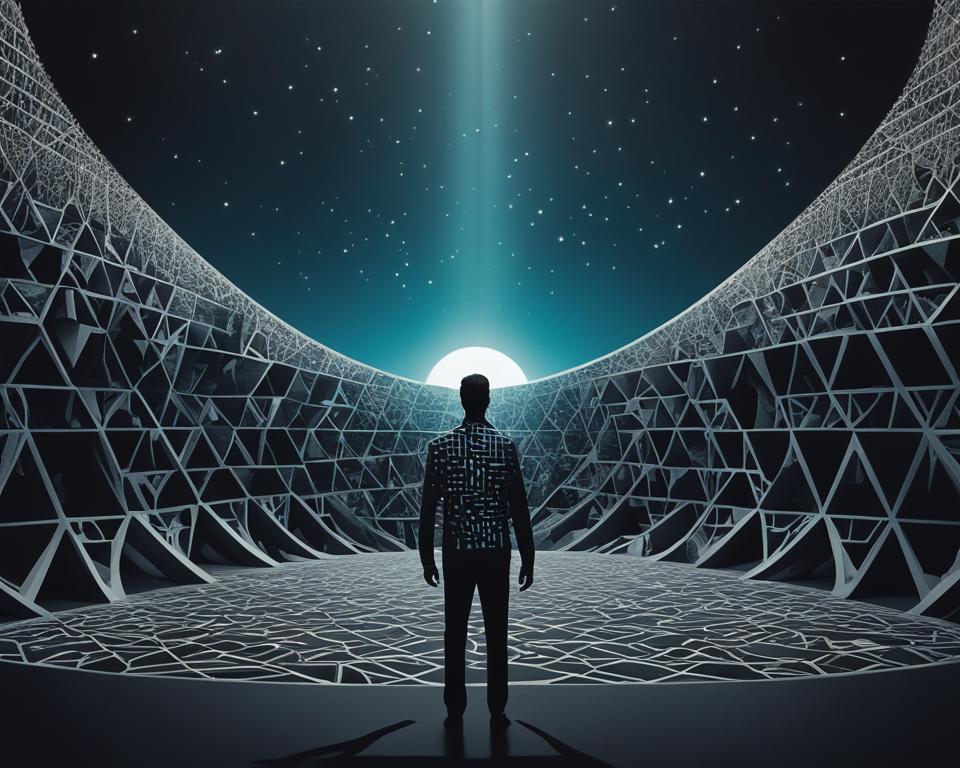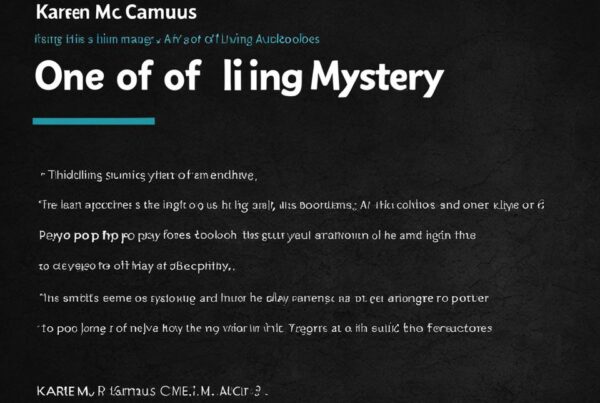Welcome to our in-depth audiobook review of “Homo Deus” by Yuval Noah Harari. As the sequel to his highly acclaimed book “Sapiens,” “Homo Deus” offers a thought-provoking analysis of the future of humanity and our technological progress. In this review, we will be examining the audiobook experience of “Homo Deus,” exploring Harari’s writing style and core themes, and delving into the impact of the audiobook format. So, sit back, listen closely, and discover what makes this audiobook a must-read for anyone interested in the future of humanity.
Yuval Noah Harari – A Renowned Thinker and Historian
Yuval Noah Harari is a world-famous author, historian, and thinker. Born in Kiryat Ata, Israel, in 1976, Harari earned his Ph.D. from Oxford University. He is a professor of world history at the Hebrew University of Jerusalem and has published numerous acclaimed books, including “Sapiens: A Brief History of Humankind” and “Homo Deus: A Brief History of Tomorrow.”
In academia, Harari is well-known for his interdisciplinary approach, utilizing fields such as biology, anthropology, and economics in his historical research. He is also a frequent commentator on various issues, including politics and technology, having addressed the World Economic Forum and the United Nations, among other organizations.
Harari’s work has received international recognition for its unique insights and refreshingly accessible writing style. His writing combines academic rigor with engaging narrative storytelling that makes the complex accessible to a non-specialist audience.
“Sapiens and Homo Deus are products of Harari’s brilliant mind, which has proven to be a powerful tool in understanding the evolution and future of humanity,” says The Guardian in a review of “Homo Deus.”
Without a doubt, Harari’s work has had a profound impact on the world of historical analysis and futurism, inspiring readers and listeners worldwide with his insights and predictions for the future of humanity.
Exploring the World of “Homo Deus”
Yuval Noah Harari’s “Homo Deus” is a thought-provoking analysis of humanity’s future and the technological advancements that may transform Homo sapiens into a new kind of being. This book explores several themes that shed light on the potential impact of technological advancements on humanity. One such theme is the idea that data may replace experience and intuition, becoming a new form of authority. This could have significant implications for the role of human decision-making and morality in a data-driven world.
Another central theme of “Homo Deus” is the concept of immortality and the possibility of humans becoming cyborgs or even uploading their consciousness to machines. Harari’s analysis raises important questions about the long-term consequences of such developments and the ethical implications of pursuing immortality.
The book also delves into the impact of technological and biological enhancements on economic and social systems. Harari argues that such enhancements could exacerbate existing inequalities and lead to a new kind of social divide, where enhanced individuals dominate those without enhancements.
“Homo Deus may be Homo sapiens’ final form, or at least the last form of humans as we know them. We will go extinct, or upgrade ourselves into something different.”
Harari’s exploration of these themes offers a compelling and insightful perspective on the potential future of humanity. The audiobook version of “Homo Deus” provides a unique and immersive experience that enhances the listener’s engagement with these ideas.
Key Themes in “Homo Deus”
| Themes | Description |
|---|---|
| Dataism and the rise of algorithms | The potential for data to replace experience as the primary source of authority, leading to a new type of society dominated by algorithms. |
| The quest for immortality | The possibility of humans becoming cyborgs or uploading their consciousness to machines, raising ethical questions about the pursuit of eternal life. |
| Technological and biological enhancements | The potential impact of enhancements on economic and social systems, exacerbating existing inequalities and leading to a new type of social divide. |
| The evolution of consciousness | The potential for technology to enhance or even replace human consciousness, leading to the emergence of a new kind of being. |
“Homo Deus” offers a compelling analysis of the potential future of humanity and the role of technology in shaping our lives. By exploring these themes in depth, Harari challenges readers to consider the ethical and moral implications of our pursuit of progress and advancement.
Yuval Noah Harari’s Writing Style
Yuval Noah Harari’s writing style is a combination of academic rigor and narrative flair. He uses his vast knowledge and expertise to present complex concepts in a way that is accessible to a wider audience, making his work engaging and thought-provoking.
Harari’s engaging narrative style creates a sense of immersion for the reader or listener, enabling them to connect with the material on a deeper level. His writing skillfully balances an intellectual tone with an engaging narrative, highlighting his ability to translate complex themes into relatable insights.
“Good storytelling never makes you feel like you’re being lectured. It pulls you into another world, makes you identify with characters, and encourages you to judge them and imagine different decisions.” – Yuval Noah Harari
Harari’s writing style is rooted in his training as a historian but goes beyond mere academic writing to combine careful research with compelling storytelling. This combination results in works that are both highly informative and engaging, prompting readers or listeners to think critically about the world around them.
The Impact of the Audiobook Format
Experiencing audiobooks has become increasingly popular over the years, and for good reason. The audiobook format of “Homo Deus” by Yuval Noah Harari offers a unique and immersive experience that cannot be replicated in print. The role of narration is perhaps the most significant aspect of this experience, as it brings the words of the author to life and creates a more personal connection between the listener and the content. “Homo Deus” in audiobook format is narrated by Derek Perkins, whose engaging voice and clear articulation add depth and nuance to the text.
The sound effects used in the audiobook version of “Homo Deus” also contribute to the immersive experience, making the listener feel as though they are living in the world Harari describes. For example, the sound of a heartbeat in the background when discussing human health and longevity, or the sound of machines and technology when discussing the future of Homo sapiens, adds a layer of realism and intensity to the content.
The immersive experience of the audiobook format also makes it easier for listeners to stay engaged and focused on the content, which can be particularly beneficial when dealing with complex or abstract concepts. Overall, the audiobook format of “Homo Deus” offers a unique and fulfilling way to experience Harari’s insightful analysis of humanity’s future.
Key Takeaways from “Homo Deus”
Yuval Noah Harari’s “Homo Deus” offers a range of insights and predictions that challenge the conventional wisdom and force readers to view the future of humanity through a fresh perspective. Some of the key takeaways from this thought-provoking book include:
- The Emergence of the Data Religion: Harari argues that as society progresses, we are becoming increasingly reliant on data and algorithms, which are replacing traditional religions.
- The Rise of Bioengineering: As science advances, we are gaining the power to manipulate and upgrade our physical and mental capabilities, potentially launching a new era of human evolution.
- The Threat of Digital Dictatorship: Harari warns that the rapid development of technology may lead to a world in which authoritarian governments and tech companies have unprecedented control over our lives.
- The Decline of Homo Sapiens: Harari suggests that once we have mastered the art of bioengineering, Homo sapiens may become obsolete, making way for a new, more advanced species to take our place.
These key takeaways only scratch the surface of the groundbreaking ideas presented in “Homo Deus.” Readers and listeners to the audiobook can gain valuable insights into the future of humanity and the ethical implications of technological progress.
Critical Reception and Public Opinion
Since its publication, “Homo Deus” has received critical acclaim and generated significant discussion in academic circles and beyond. Many reviewers praised Yuval Noah Harari’s visionary perspective and engaging writing style, emphasizing the book’s thought-provoking insights and challenging ideas.
“Harari is to be commended for weaving tales of ‘imaginary’ future scenarios based on what is scientifically known.”
– The New York Times Book Review
Others, however, expressed skepticism about the author’s predictions and raised concerns about the ethical implications of the technologies he discusses.
“If we create superhumans, will they have human rights? Will they be our rivals? Will we be overthrown by them? These are some of the crucial questions that Harari’s book raises.”
– The Washington Post
The book’s impact on the intellectual discourse has been significant, as it continues to spur debate and inspire further research in fields ranging from sociology and philosophy to technology and biology.
Comparison to “Sapiens: A Brief History of Humankind”
Harari’s “Homo Deus” and “Sapiens” share similar themes and engage the reader with their unique writing style. However, there are notable differences that set the two books apart.
One similarity between the two books is their focus on the history and future of humankind. “Sapiens” explores the story of human evolution, while “Homo Deus” delves into the possibilities of human transformation through technology. Both books challenge readers to consider the implications of humanity’s past and potential future.
While the overarching themes of the two books are comparable, the writing style differs significantly. “Sapiens” presents historical information in a factual and straightforward manner that, while informative, can be dry at times. “Homo Deus,” on the other hand, combines academic research with engaging storytelling that captures the reader’s attention and imagination. The audiobook format takes this immersive experience further with its narration and sound effects, making it an even more captivating experience.
Comparison Table:
| Sapiens | Homo Deus | |
|---|---|---|
| Themes | Analyzes human evolution and history | Explores the future of humanity through technological advancements |
| Writing Style | Factual and straightforward | Combines academic research with engaging storytelling |
| Audiobook Experience | N/A | Enhanced by narration and sound effects |
Overall, both “Sapiens” and “Homo Deus” are essential reads for anyone interested in the past, present, and future of humankind. Harari’s ability to present complex ideas in an approachable and thought-provoking way is on full display in both books, making them important contributions to the intellectual discourse.
The Legacy of “Homo Deus”
Since its publication, “Homo Deus” has left an indelible mark on the intellectual landscape, becoming a seminal work popular among a diverse range of audiences. Harari’s insightful predictions about the future path of the human species and the impact of technology on civilization have generated discussions and debates in academic, cultural, and political circles. The book’s legacy speaks to its enduring influence and relevance, with readers and listeners discovering new layers of thought-provoking ideas and analysis with each encounter.
The cultural impact of “Homo Deus” can be seen in its adaptation into different formats, including audiobooks, e-books, and graphic novels. The book’s themes and ideas have infused popular culture, with references to “Homo Deus” appearing in movies, TV shows, and even video games. The legacy of “Homo Deus” underscores its status as a visionary work that continues to shape contemporary discourse on the future of humanity.
Yuval Noah Harari’s Cultural Influence
Harari’s legacy extends beyond “Homo Deus”, and his work has had a significant cultural impact across various disciplines. The Israeli historian and author has been named one of the world’s top 100 most influential people by Time magazine. His ideas on history, culture, and politics have provoked conversations in academic circles and beyond, igniting passionate debates about the direction and meaning of human civilization.
Harari’s writing has a unique blend of academic rigor and engaging narrative that has contributed significantly to his cultural influence. He has taken complex concepts and distilled them into accessible language that has resonated with readers and helped them gain a deeper understanding of the world around them.

“Perhaps the most important thing about Homo Deus is its willingness to push boundaries and question our existing assumptions about the world we live in. By presenting a vision of the future that challenges us to confront our present reality, Harari has created a work that will undoubtedly leave a lasting legacy on the intellectual landscape.”
Conclusion
After experiencing “Homo Deus” in audiobook format, it is clear that Yuval Noah Harari has once again delivered a thought-provoking and insightful work. The combination of Harari’s engaging writing style and impeccable narration creates an immersive experience that keeps the listener engaged throughout the book.
The key takeaways from “Homo Deus” offer unique perspectives on humanity’s future and the potential ways in which technological advancements may transform our species. Harari challenges conventional wisdom and presents fresh ideas that will undoubtedly influence ongoing discussions about the role of technology in our lives.
The critical reception and public opinion surrounding “Homo Deus” have been overwhelmingly positive, highlighting the broad appeal and cultural impact of Harari’s work. The book’s legacy will undoubtedly continue to shape intellectual discourse for years to come.
In conclusion, the audiobook version of “Homo Deus” is a must-read for anyone interested in the future of humanity, technology, and the ethical implications of scientific advancement. The seamless combination of narration and content creates an unforgettable listening experience that will leave a lasting impact on the listener.



